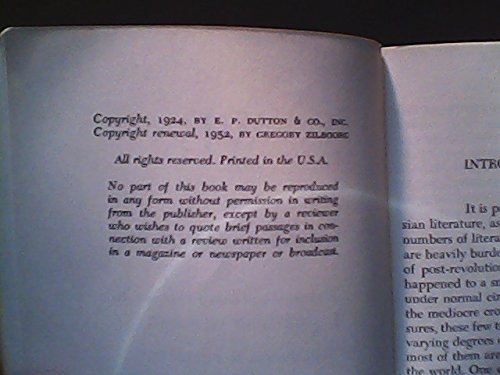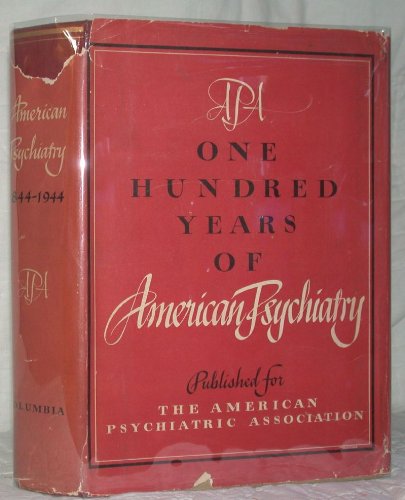Background
Zilboorg was born on December 25, 1890 in Kiev, Ukraine, the son of Moses Zilboorg and Anne Braun.



( In a glass-enclosed city of absolute straight lines, ru...)
In a glass-enclosed city of absolute straight lines, ruled over by the all-powerful 'Benefactor', the citizens of the totalitarian society of OneState live out lives devoid of passion and creativity - until D-503, a mathematician who dreams in numbers, makes a discovery: he has an individual soul. Set in the twenty-sixth century AD, "We" is the classic dystopian novel and was the inspiration for George Orwell's 1984. It was suppressed for many years in Russia and remains a resounding cry for individual freedom, yet is also a powerful, exciting and vivid work of science fiction. "Fantastic." -- The New York Times "One of the best!" -- New York Review of Books "WE is one of the great novels of the twentieth century." -- Irving Howe
https://www.amazon.com/WE-Eugene-Zamiatin/dp/B004W0YBZY?SubscriptionId=AKIAJRRWTH346WSPOAFQ&tag=prabook-20&linkCode=sp1&camp=2025&creative=165953&creativeASIN=B004W0YBZY

(First edition. Of particular interest here is the chapter...)
First edition. Of particular interest here is the chapter by Henry Alden Bunker, "American Psychiatric Literature During the Last One Hundred Years," pp.195-271. A bibliographic essay concluding with a list of "some important books in American psychiatry published during the last twenty-five years" and a list of American psychiatric periodicals back to 1844. Dust jacket chipped with a piece missing at the head of the spine. Fore-edges of a number of pages are spotted at the beginning. ii , 649, 3 pages. two-tone cloth, dust jacket.. large 8vo..
https://www.amazon.com/One-Hundred-Years-American-Psychiatry/dp/0231013620?SubscriptionId=AKIAJRRWTH346WSPOAFQ&tag=prabook-20&linkCode=sp1&camp=2025&creative=165953&creativeASIN=0231013620

https://www.amazon.com/renaissance-Publications-Institute-medicine-university/dp/B0006AMW6Y?SubscriptionId=AKIAJRRWTH346WSPOAFQ&tag=prabook-20&linkCode=sp1&camp=2025&creative=165953&creativeASIN=B0006AMW6Y
Zilboorg was born on December 25, 1890 in Kiev, Ukraine, the son of Moses Zilboorg and Anne Braun.
After graduating from the local Realschule, Zilboorg served (1915-1916) in the medical corps of the czar's army. He later graduated from the Faculty of Medicine in St. Petersburg.
After graduation, Zilboorg worked at the Psychoneurological Institute of that city under Vladimir Bekhterev, the founder of the school of "psycho-reflexology. " He participated in the Russian Revolution of March 1917 and served as secretary to the minister of labor in the governments of Prince Georgi Lvoy and Alexander Kerensky. Following the Bolshevik Revolution he fled Russia, arriving in the United States in 1919. Zilboorg supported himself by lecturing, writing, and translating for the theater. After graduating from the Columbia University College of Physicians and Surgeons in 1926, he worked for five years on the staff of the Bloomingdale Hospital. He spent 1929-1930 at the Berlin Psychoanalytic Institute, where he was analyzed by Franz Alexander. From 1931 on, he engaged in psychoanalytic practice in New York City. Until 1941, Zilboorg was mainly concerned with the study of certain syndromes of the schizophrenic reaction from the psychoanalytic perspective. He described patients suffering from postpartum psychosis as affected by ambivalence toward motherhood, sadistic tendencies toward men, and inclination to marry later in life. Zilboorg found in many cases of suicide both strong unconscious hostility and an unusual inability to love others, at times related to lack of a normal loving relationship with parental figures. He translated the German originals of Franz Alexander and Hugo Staub's The Criminal, the Judge and the Public (1931) and Otto Fenichel's Outline of Psychoanalysis (1934). Zilboorg's primary importance, however, lies in his many studies on the history of psychiatry. His unusually broad humanistic background was a great asset in this work. His most original contribution was The Medical Man and the Witch During the Renaissance, which he delivered as the Noguchi lectures at the Institute of the History of Medicine of the Johns Hopkins University in 1935. Zilboorg's lively History of Medical Psychology (1941) has enjoyed continuing popularity. It was the first comprehensive history of psychiatry by a psychiatrist. Later he published a translation of Paracelsus' The Diseases That Deprive Man of His Reason (1941) and wrote on the history of psychiatry in Russia. In 1944, on the occasion of the centennial of the founding of the American Psychiatric Association, he was associate editor of One Hundred Years of American Psychiatry, for which he wrote the chapter "Legal Aspects of Psychiatry. " In The Psychology of the Criminal Act and Punishment (1954), a series of lectures that he delivered as Isaac Ray lecturer at Yale University, he made a strong case for the clinical evaluation of the total personality of the criminal and for a candid inquiry into the unconscious motivations of judges. In his monograph Sigmund Freud (1951) Zilboorg stressed Freud's discovery of the dynamic power of the unconscious, the role of free associations, and the importance of applying psychoanalytic understanding to literature. Zilboorg wrote on religious as well as on humanistic issues for many years. He submitted that Freud had a personal conflict with religion; he criticized Freud for having called only religion a neurosis, and not other cultural phenomena (myths, songs, folklore, dreams); and he maintained that in Freud, intuition and psychophysical determinism, a mystic as well as a materialistic trend, coexisted. Zilboorg was a charter member of the New York Psychoanalytic Institute (1931) and a cofounder of Psychoanalytic Quarterly (1932). He also served as training analyst for many years. Aside from his positions as professor of psychiatry at the College of Medicine of the State University of New York and at the New York Medical College, he was Gimbel lecturer at the University of California in 1947 and first academic lecturer at the annual meeting of the American Psychiatric Association in 1957. He also served as director of research for the Committee for the Study of Suicide and as chairman of the Consulting Delegation on Criminology to the United Nations. He died in New York City on September 17, 1959.
( In a glass-enclosed city of absolute straight lines, ru...)
(First edition. Of particular interest here is the chapter...)
Zilboorg's religious development was interesting. Born of Orthodox Jewish parents, he later joined the Episcopal Church and, in 1954, the Roman Catholic Church.
Zilboorg had an extremely forceful personality. He was a nonconformist, a master of the written and spoken word, a linguist and a scholar, and a champion of individualism, both admired and rejected because of his tremendous ability to love.
On December 14, 1919, Zilboorg married Ray Leibow; they had two children. In 1946 he divorced his wife and, on August 19, 1946, married Margaret Stone. They had three children.
